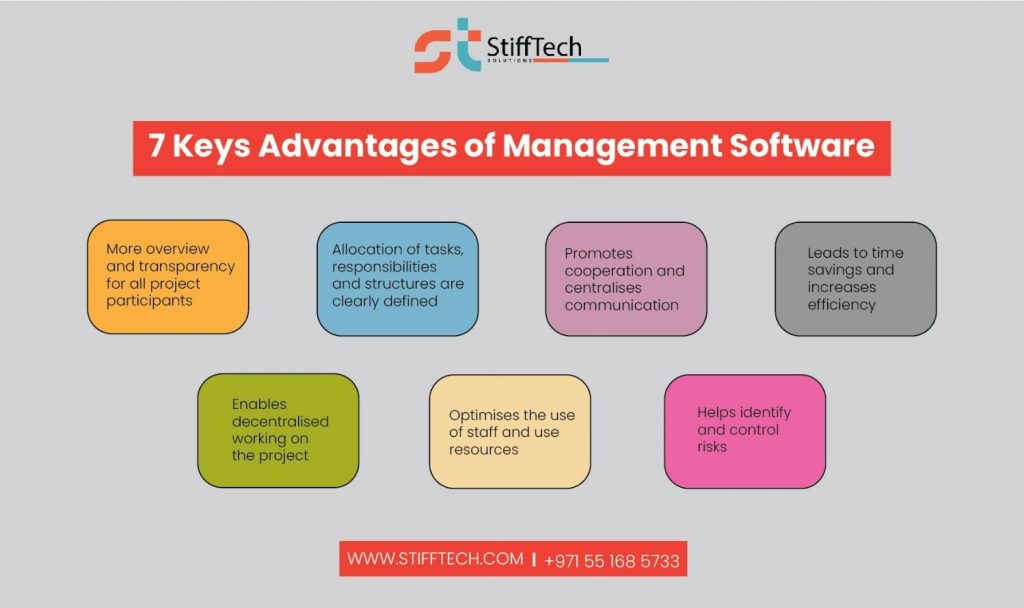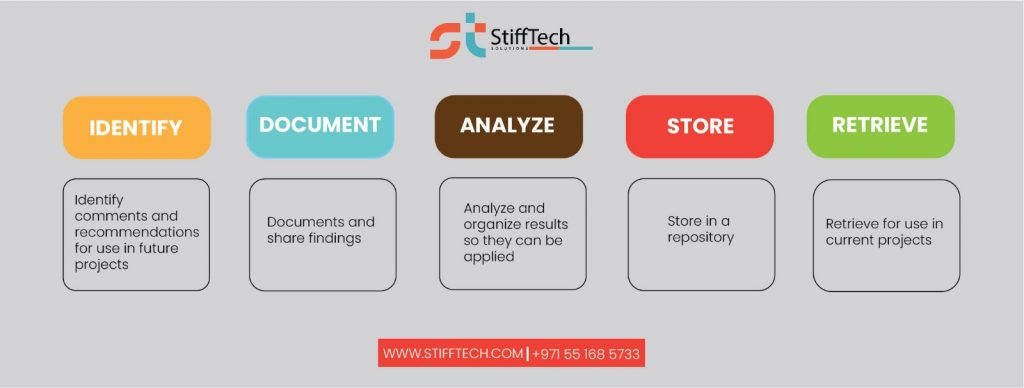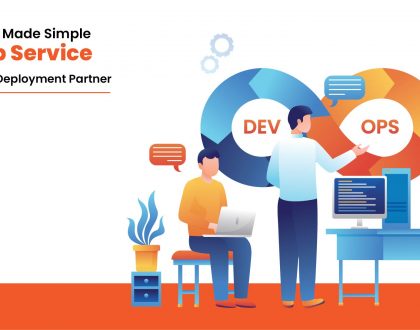IT Project Management – Best Practices for Successful Implementations
by admin
August 29, 2023
in CMS Development, Custom Web Development, E-Commerce Development, Mobile App Development, Search Engine Optimization, Social Media Marketing, UI/UX Designing, Uncategorized, Website Development
No Comments
440

Over the years, as technology evolved and became more complex, IT project management methodologies and practices also advanced to meet the challenges of managing IT projects effectively.
Project management can be defined as a way of developing structure in a complex project, where the independent variables of time, cost, resources and human behavior come together.
~ Rory Burke
What is IT Project Management
IT project management refers to the practice of planning, executing, and controlling projects related to information technology (IT) systems, infrastructure, and software development. It stems from the need to effectively manage IT projects to deliver value, and adapt to rapidly changing technology landscapes.
IT Project Management Certifications
IT project management certification is a professional credential that certifies an individual’s knowledge, skills, and expertise in managing IT projects. It demonstrates their competence in applying project management principles and best practices specifically in the IT industry.
Here are some popular IT Project management certifications:
- Project Management Professional (PMP)
- CompTIA Project+
- Certified Associate in Project Management (CAPM)
- PRINCE2
IT Project Management Software
IT Project Management Software is a software used by a large number of industries for project planning and resource allocation. It helps the project managers to control their budget management, quality management and all documentation exchanged throughout a project.
Here are some popular IT project management software options:
- Microsoft Project
- Jira
- Asana
- Trello
- Basecamp
- Smartsheet

IT Project Management Consulting
IT project management consulting refers to the practice of seeking expertise from external consultants specialized in IT project management. These consultants provide strategic advice, guidance, and support to organizations in managing their IT projects effectively.
IT project management consulting services can be beneficial in various scenarios, such as:
Project Planning and Strategy
Consultants assist organizations in developing comprehensive project plans, defining project objectives, scope, and requirements. They help align project goals with business objectives and develop strategies for successful project execution.
Project governance and best practices
Consultants help organizations establish project governance frameworks and best practices to ensure effective project management across the organization. They assist in defining project management methodologies, processes, and templates.
Project Recovery
In case of troubled projects, consultants can help organizations recover and get back on track. They assess project issues, identify root causes, and develop recovery plans to complete projects and achieve project objectives.
Training and Capability Building
IT project management consultants offer training programs and workshops to enhance the project management capabilities of project managers and teams. They provide guidance on project management best practices, tools, and techniques.
IT Project Management Tools
IT Project management tools are specially designed to help an individual or team in managing their projects and tasks effectively. IT Project management tools are specially designed to assist an individual or team in managing their projects and tasks effectively.
- Number of Users
- Pricing structure
- Key features required
- Scalability
- Ease of use
What does an IT Project Manager do?
IT Project Manager primary responsibility is to ensure the successful completion of IT projects while meeting specific objectives, fulfilling timelines, budgets, and quality standards. An IT project manager plays an important role in planning, executing, and overseeing IT projects within an organization.
“Being a Project Manager is like being an artist, you have the different colored process streams combining into a work of art”
~ Greg Cimmarrusti
Key Responsibilities of an IT Project Manager
Below are the key responsibilities of an IT Project Manager:
Project Planning
The IT project manager works closely with stakeholders to define project objectives, scope, and requirements. They develop a comprehensive project plan, including timelines, resources, and budgets.
Stakeholder Management
Stakeholder management is a critical aspect of project management that involves identifying, analyzing, and engaging with individuals or groups who have an interest or influence in the project. Its the responsibility of the project manager to communicate with them to manage expectations, gather feedback, and address concerns throughout the project.
Team Management
Team management is a part of project management that involves leading, organizing, and guiding a group of individuals to achieve project objectives. They provide guidance, support, and motivation to ensure the team is working collaboratively towards project goals.

Risk Management
Risk Management is essential for minimizing the negative impact of risks and maximizing the chances of project success. They proactively monitor and manage risks throughout the project, making adjustments and implementing contingency plans as needed.
Resource allocation
The project manager is responsible for managing and resource allocation including human resources, equipment, and budgets. They ensure that resources are utilized effectively to meet project objectives.
Project Execution
The IT project manager oversees the project execution, ensuring that they are completed on time, within budget, and according to quality standards. They track progress, manage dependencies, and make necessary adjustments to keep the project on track.
Communication Management
The project manager establishes effective communication channels within the project team and with stakeholders. They provide regular project status updates, communicate changes, and address issues or conflicts that arise during the project.
Quality Assurance
The project manager plays a central role in establishing and implementing quality assurance processes throughout the project lifecycle. They analyze project data, metrics, and lessons learned to identify areas for improvement in processes, tools, and techniques.
Change Management
The IT project manager manages that occur during the project, assessing their impact, obtaining approvals, and implementing them while minimizing disruption. They ensure that proper change control processes are followed.
Project Documentation
The project manager ensures a smooth project closure, including finalizing deliverables, obtaining client acceptance, and conducting a project evaluation through project documentation. They capture lessons learned, document best practices, and facilitate knowledge transfer for future projects.
Performance Measurement
Monitoring and measuring project performance against predefined metrics enable project managers to assess progress and take corrective actions. Best practices for performance measurement include:
- Establishing key performance indicators (KPIs) aligned with project objectives.
- Regularly tracking and analyzing project performance against KPIs.
- Conducting periodic project health checks and performance reviews.
- Using performance data to identify improvement areas and make informed decisions.
- Communicating performance results to stakeholders and incorporating feedback.
Budget Management
Effective budget management ensures that projects are delivered within approved financial constraints.
- Developing a detailed project budget, considering all relevant costs.
- Monitoring project expenditures regularly and comparing them against the budget.
- Tracking and controlling project costs to avoid cost overruns.Identifying and addressing budget variances promptly.
- Communicating budget status and financial updates to stakeholders.
Project Execution
Project execution refers to the implementation phase of a project where the planned activities are carried out to achieve the project objectives. It involves coordinating resources, managing tasks, monitoring progress, and making adjustments as necessary to ensure the project stays on track.
Project Success
Project success refers to the achievement of project objectives within the defined constraints of time, budget, scope, and quality. It is measured by evaluating the extent to which the project meets stakeholder expectations and delivers the intended outcomes.
Project Lifecycle
The project life cycle refers to the stages or phases a project goes through from initiation to closure. The project lifecycle provides a structured approach to managing projects, ensuring that projects progress through defined stages and follow best practices for successful project execution. It typically includes the following phases:
Initiation
The project is defined, objectives are established, and initial planning takes place. Feasibility studies, business cases, and project charters are developed.
Planning
Detailed project planning occurs, including defining project scope, creating a project schedule, allocating resources, and developing a risk management plan. A project plan is established to guide project execution.
Execution
The project plan is put into action. Tasks are executed, resources are managed, and project progress is monitored. Changes and risks are managed, and communication with stakeholders occurs.
Monitoring and Control
Project progress, budget, quality, and risks are monitored and controlled during this phase. Adjustments are made as necessary to ensure project objectives are met.
Closure
The project is formally closed, and deliverables are finalized and handed over to the stakeholders. Lessons learned are captured, and post-project reviews may take place to identify areas of improvement.

Lessons Learned
Lessons learned is the knowledge gained from the process of conducting a project. The lessons learned process involves 5 steps with activities that will capture and use lessons learned. The steps are:
Conclusion
Successful IT project implementations rely on adhering to best practices across the project lifecycle. Continuous learning from lessons learned and adapting practices based on evolving industry standards and technologies also contribute to successful IT project management.
Operations keep the lights on, strategy provides a light at the end of the tunnel, but project management is the train engine that moves the organization forward
~ Joy Gumz




